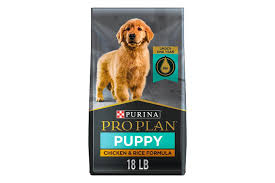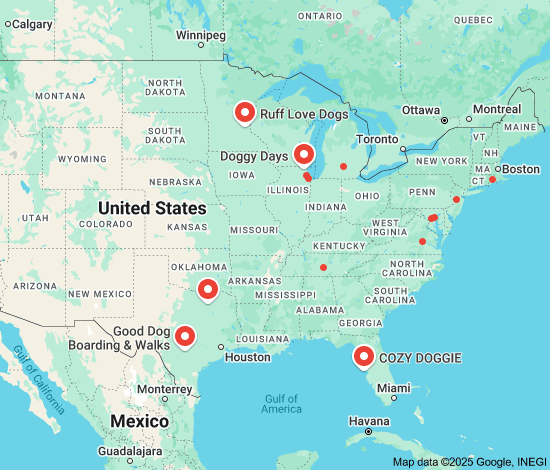The Importance of High-Quality Dog Food
Dogs are not just pets; they are beloved members of our families. As responsible pet owners, it is our duty to ensure that our furry companions receive the best care possible, starting with their diet. One of the key factors in maintaining your dog’s health and well-being is feeding them high-quality dog food.
Benefits of High-Quality Dog Food:
Nutritional Value: High-quality dog food is formulated to provide the essential nutrients that dogs need to thrive. This includes a balanced mix of proteins, carbohydrates, fats, vitamins, and minerals to support their overall health.
Digestive Health: Quality dog food often contains easily digestible ingredients that are gentle on your dog’s stomach. This can help prevent digestive issues such as upset stomach, diarrhea, and constipation.
Healthy Weight Management: Proper nutrition is crucial for maintaining your dog at a healthy weight. High-quality dog food helps regulate calorie intake and provides the necessary nutrients without unnecessary fillers that can lead to weight gain.
Improved Skin and Coat Health: Many premium dog foods contain ingredients rich in omega-3 and omega-6 fatty acids, which promote healthy skin and a shiny coat. This can reduce shedding and minimize skin irritations.
Choosing the Right Dog Food:
When selecting a high-quality dog food for your furry friend, consider factors such as your dog’s age, size, activity level, and any specific dietary requirements they may have. Look for brands that use real meat as the primary ingredient and avoid artificial additives or fillers.
Consulting with your veterinarian can also help you determine the best diet for your dog based on their individual needs and health status.
In Conclusion
Your dog’s diet plays a crucial role in their overall health and happiness. By investing in high-quality dog food, you are not only providing them with proper nutrition but also setting them up for a long and healthy life by your side.
6 Essential Tips for Selecting High-Quality Dog Food
- Choose dog food with real meat as the first ingredient.
- Look for a balance of protein, fats, carbohydrates, vitamins, and minerals.
- Avoid artificial colors, flavors, and preservatives in dog food.
- Consider your dog’s age, size, breed, and activity level when selecting food.
- Consult with a veterinarian to determine the best diet for your dog’s specific needs.
- Gradually transition to new dog food to prevent digestive upset.
Choose dog food with real meat as the first ingredient.
When selecting high-quality dog food, it is essential to choose a product with real meat listed as the first ingredient. Real meat provides essential proteins and nutrients that are vital for your dog’s overall health and well-being. By opting for dog food with real meat as the primary ingredient, you can ensure that your furry companion receives the necessary protein sources for energy, muscle development, and a healthy immune system. This simple yet crucial tip can make a significant difference in your dog’s diet and contribute to their overall quality of life.
Look for a balance of protein, fats, carbohydrates, vitamins, and minerals.
When choosing high-quality dog food, it is essential to look for a balance of protein, fats, carbohydrates, vitamins, and minerals. These essential nutrients are key to supporting your dog’s overall health and well-being. Protein helps build and repair tissues, fats provide energy and support cell function, carbohydrates offer a source of energy, while vitamins and minerals play vital roles in various bodily functions. Ensuring a proper balance of these nutrients in your dog’s diet can help maintain their optimal health and vitality.
Avoid artificial colors, flavors, and preservatives in dog food.
When choosing high-quality dog food, it is important to avoid products that contain artificial colors, flavors, and preservatives. These additives offer little to no nutritional value and can potentially harm your dog’s health in the long run. Opting for natural ingredients instead helps ensure that your furry companion receives a diet free from unnecessary chemicals, promoting better overall well-being and reducing the risk of potential allergies or digestive issues. Prioritizing wholesome, real ingredients in your dog’s food can contribute to their longevity and vitality.
Consider your dog’s age, size, breed, and activity level when selecting food.
When choosing high-quality dog food, it is essential to consider various factors such as your dog’s age, size, breed, and activity level. Different dogs have different nutritional needs based on these factors, and selecting a diet that aligns with your dog’s specific requirements can significantly impact their overall health and well-being. By taking into account these individual characteristics, you can ensure that your furry companion receives the appropriate nutrients to support their growth, energy levels, and overall vitality.
Consult with a veterinarian to determine the best diet for your dog’s specific needs.
It is essential to consult with a veterinarian to determine the best diet for your dog’s specific needs. Veterinarians can provide valuable insights based on your dog’s age, breed, weight, activity level, and any underlying health conditions. By seeking professional advice, you can ensure that your furry companion receives a tailored nutrition plan that promotes their overall well-being and longevity.
Gradually transition to new dog food to prevent digestive upset.
When switching to a new high-quality dog food, it is essential to gradually transition your pet to avoid digestive upset. Slowly introducing the new food by mixing small amounts with their current food over several days allows your dog’s digestive system to adjust smoothly. This gradual transition helps prevent gastrointestinal issues such as upset stomach, diarrhea, or vomiting, ensuring a seamless and comfortable switch to the healthier diet for your furry companion.




